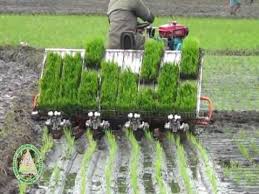PriceWaterhouseCoopers (PwC) Nigeria has reported that with a consumption per capita of 32kg, Nigeria’s consumption increased 4.7 percent, almost four times the global consumption growth in the past decade.
The consulting and research firm disclosed this in its ‘Boosting Rice Production Through Mechanisation’ Report published today.
Specifically, PwC disclosed that Nigeria’s consumption reached 6.4 million tonnes in 2017, accounting for c.20 percent of Africa’s consumption, adding that as at 2011, rice accounted for just 10 percent of household food spending, and 6.6 percent of total household spending.
It noted that given the importance of rice as a staple food in the country, the government had prioritized its production over the past seven years with production peaking at 3.7 million tonnes in 2017.
The leading global consulting company, pointed out that despite this improvement, comparatively, the country’s rice production figures showed that there was an enormous potential to raise productivity from the current level of 2 tonnes per hectare.
According to PwC, as population increases, along with rural to urban migration, the need to ensure food security in key staples becomes critical. It noted, however, that food security cannot be achieved by a system that depends almost entirely on human muscle power and other manual methods.
In its mechanization comparative analysis, the research firm noted that Nigeria’s machinery stock remained low at 0.3 hp/ha, relative to 2.6hp/ha in India and 8 hp/ha in China.
It estimated the number of agricultural tractors in the country at around 22,000, relative to 1 million and 2.5 million in China and India respectively, attributing low income, limited access to affordable financing and the lack of technical skills to the limited adoption of mechanisation across the rice value chains.
To increase Nigeria’s stock of machinery from 0.3hp/ha to 0.8hp/ha in the next five years and double rice production, PwC estimated that Nigeria would need to at least triple its current stock of machinery over the same period.
According to the company, in addition to raising production, adequately increasing mechanisation had the capacity to raise yields, increase labour productivity, reduce post-harvest losses, increase income generated by farmers and deepen import substitution.
It reported that globally, rice production has grown at an annual average of 1.0 percent over the past decade, reaching 486.7 million tonnes last year, with 89 percent of global output coming from Asia. China and India are the largest producers, each with a share of 29.6% and 22.6% of global production respectively.






